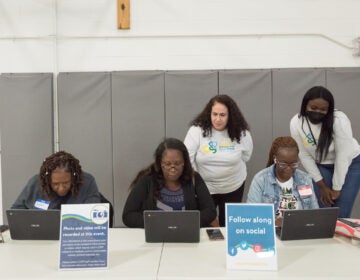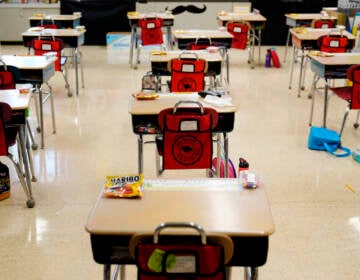Spurred by faith and finances, Philly private schools embrace in-person learning
Public schools may be having second thoughts, but Philly’s private schools say they’re ready to open the doors this fall.
Listen 1:46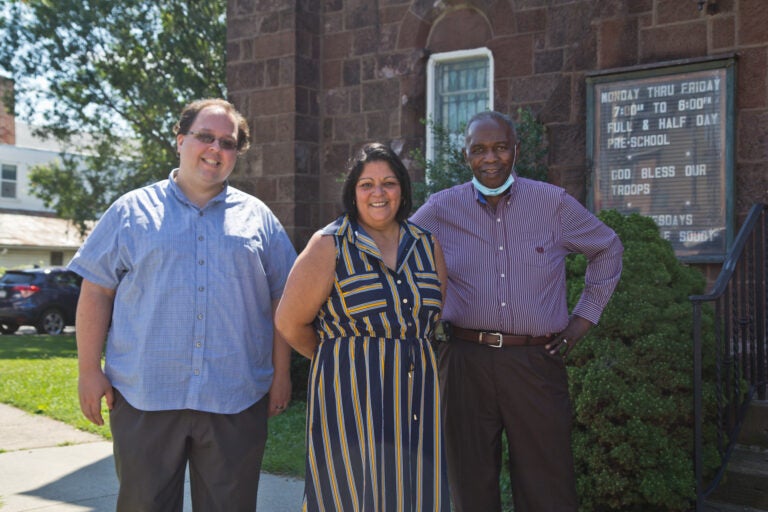
Walt Rice (left), Connie Vazquez (center) and pastor Edward Johnson (right) in front of the Holmesburg Baptist Church and Christian Academy in Northeast Philadelphia. (Kimberly Paynter/WHYY)
Are you on the front lines of the coronavirus? Help us report on the pandemic.
The school reopening plan for Holmesburg Christian Academy hews closely to the safety plan first proposed — and then abandoned — by the School District of Philadelphia.
There is, however, one important difference:
The school plans to actually open.
The small, evangelical school in Northeast Philadelphia says it’ll have face-to-face instruction for all students, every day.
“From youngest to oldest, from top to bottom, we really see this as something that is worth it,” said Walt Rice, the financial administrator and admissions director at the school of 175 students. “Worth it for the sake of serving Jesus. Worth it for the sake of serving these kids.”
Whether compelled by Christ or secular reasons, many private schools in Philadelphia seem to be following Holmesburg Christian Academy’s path.
As several major charter networks and public school districts — including Philadelphia’s — opt for an all-virtual start, private schools are leaning the opposite direction.
When WHYY canvassed private schools across the city, not one said it plans to start the school year fully online.
But roughly 20 independent schools did say they’ll have five days of in-person classes a week. And another handful plans to have a hybrid approach that includes some online learning and some face-to-face instruction.
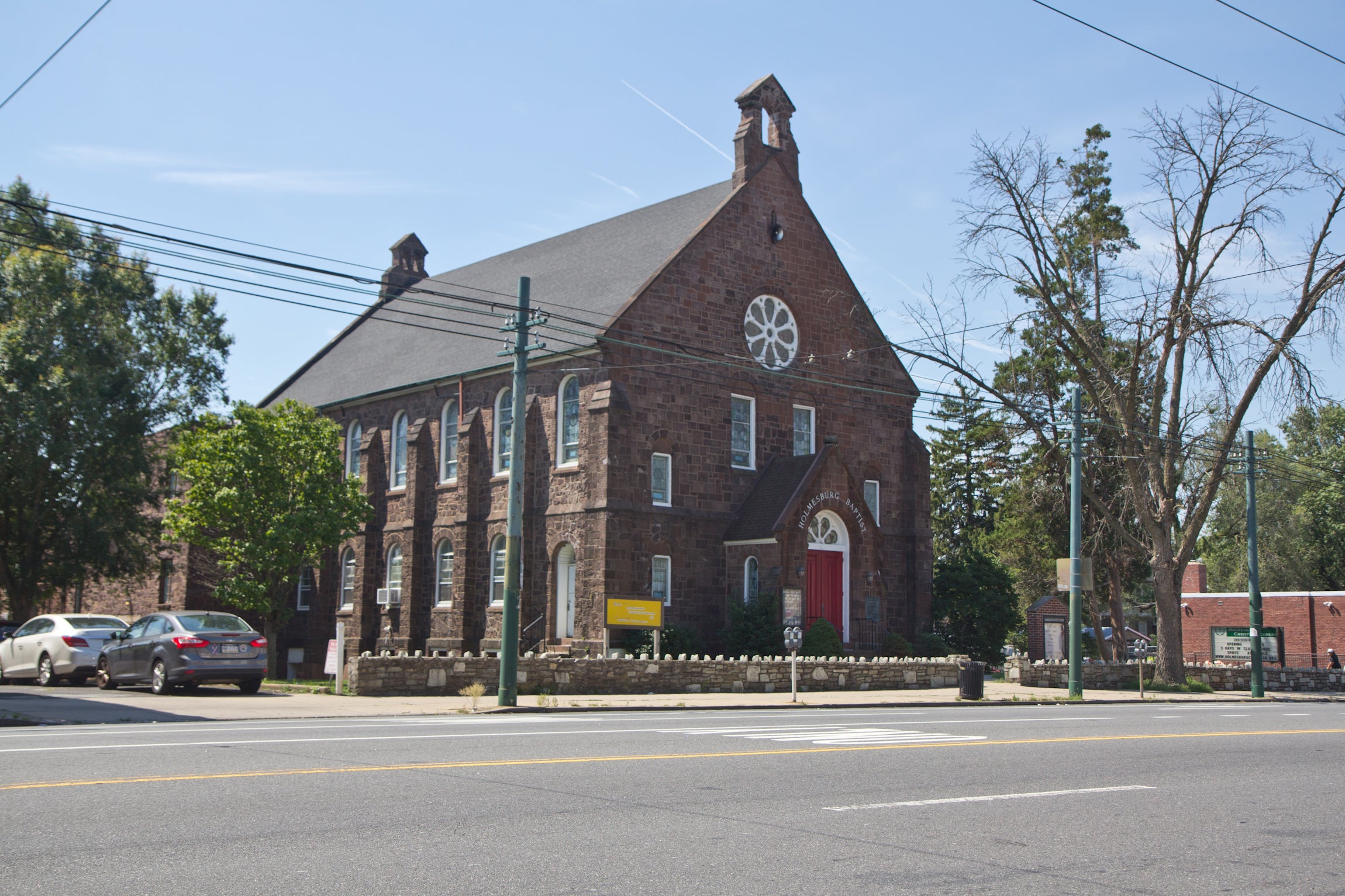
Meanwhile, the Archdiocese of Philadelphia, which runs dozens of schools across the city, recently announced it would have an in-person model for its elementary schools and a hybrid approach at the high school level.
What’s emerging, it seems, is a rift that could influence the educational destinies of several thousand students in America’s poorest big city. Forget “pandemic pods.” The biggest factor in whether your child receives an in-person education this fall might be whether you pay for them to attend school in the first place.
“It just feels like we can do this,” said Rice with Holmesburg Christian Academy. “And we don’t have to compromise.”
More space, more options
Philadelphia-based private schools educate roughly 35,000 students, according to state enrollment data.
But many of the individual schools are small, which private school leaders believe gives them critical advantages.
For starters, it means more space.
Sophia Academy in East Oak Lane mentioned in its reopening announcement that class sizes are never larger than seven as a rule, and that it could hold lessons outside. St. James School in Strawberry Mansion noted that it has a 10-acre campus and one of the smallest schools, by enrollment, in Philadelphia.
New Life Alternatives Christian Academy in the Overbrook Park section of West Philadelphia is spread among four floors, but has just 40 students, said principal Bonita Patterson — fewer than many public schools enroll in a single grade. She believes the space will allow the school to operate safely.
“Face-to-face is what we need to do and that’s the way we feel the Lord is leading us,” Patterson said.
A small school can also mean a relatively narrow base of parents to please.
Instead of trying to synthesize the wishes of parents scattered across neighborhoods and socioeconomic backgrounds, many private schools say they’ve seen pretty clear consensus in what their families want.
Marilynn Miles, principal of Greater Hope Christian Academy in Southwest Philadelphia, said a significant percentage of her parents are essential workers. They overwhelmingly wanted school to be open this fall.
“If they can’t work, then we have to serve,” said Miles.
Serving the customers
Private schools also have powerful financial incentives to open. Some say it’s a matter of survival.
Though a handful of high-profile schools have large endowments and charge tens of thousands for tuition, there are many mom and pop private schools that serve working-class families.
Those schools operate on slim margins, said Walt Rice with Holmesburg Christian Academy, and can’t afford to lose parents. Few are eager to pay for an all-virtual option.
“Our customers are saying, ‘Here’s what we’re willing to pay for,’” Rice explained. “And we have to decide is that something we’re offering? Can we do it safely?”
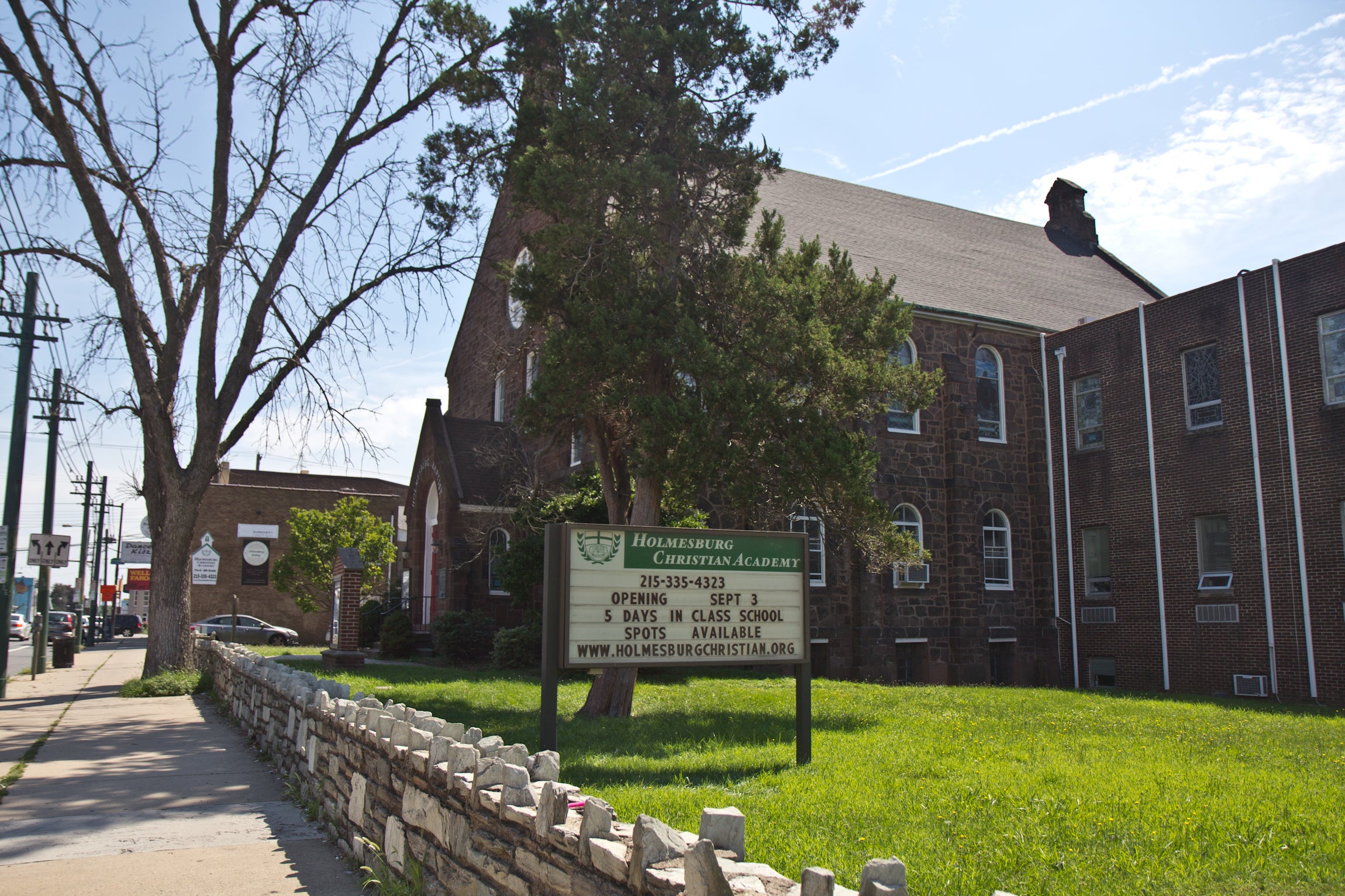
Public schools get a steady stream of government money. Although private schools can tap into state scholarship subsidies and the Paycheck Protection Program offered through the federal CARES Act, their share of government money cannot make up for an exodus of parents.
“Every year you need to have a certain number of kids to make a budget work,” Rice said.
With the economy already squeezing many families, it’s incumbent on schools to appease those who can still pay.
Marilynn Miles of Greater Hope Christian Academy said she’s already lost some parents, and feels her school has to open this fall. To do so, she added six more employees to her staff of 18 and spent more than $60,000 on safety gear.
“I’ve had so many Amazon boxes coming to my home, I don’t know what my neighbors think of me,” Miles said.
‘I’m not afraid of dying’
Holmesburg Christian Academy hopes that its tight-knit community will hold together as it tries to keep its doors open and its lights on.
The school staff, which is not unionized, already get paid less than the staff at public and charter schools, Rice said. Many are drawn to the school by its mission, and he hopes that commitment will help them weather whatever storms may come.
The school’s reopening plan begins with a passage on Christian values titled “Faith Not Fear!”
“We don’t think of everything from risk avoidance and fear,” said Rice. “I’m not afraid of dying because I know what comes next. I don’t wanna die…but at the same time, I can say these kids really need an education.”
Head of school Confesora Vazquez-Matos believes that message will resonate with her staff and parents.
“We can only walk by faith and know that there is someone who is watching over us and giving us the protection that we need,” she said.
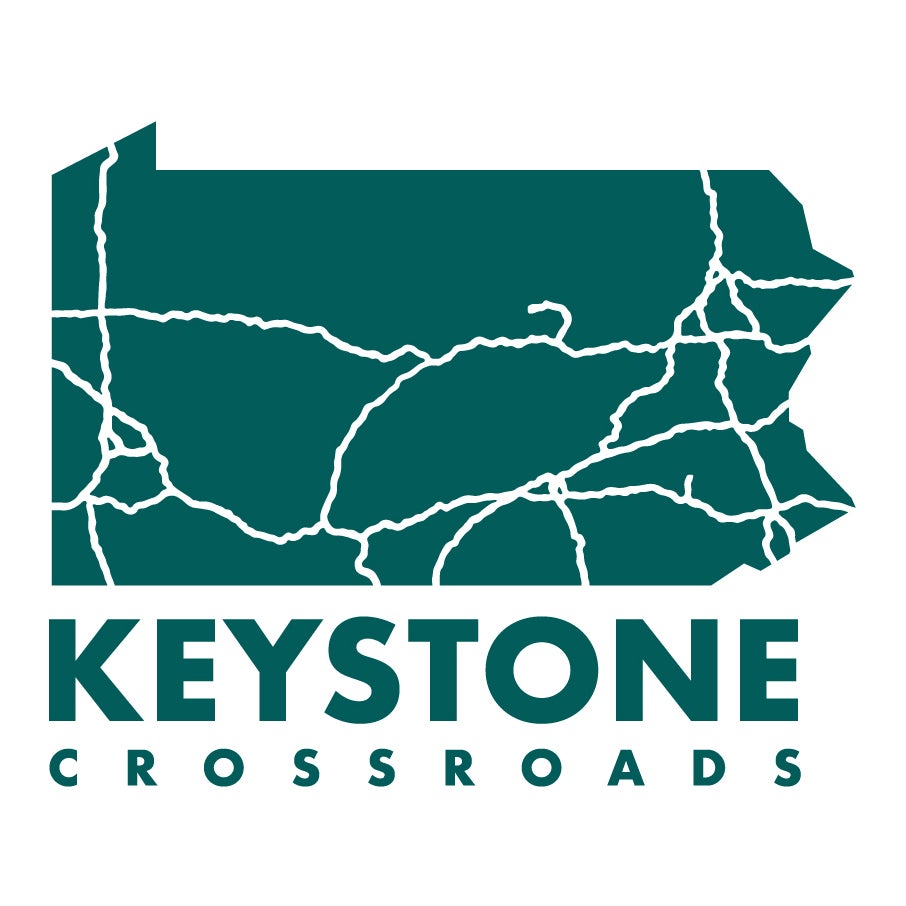
Get more Pennsylvania stories that matter
WHYY is your source for fact-based, in-depth journalism and information. As a nonprofit organization, we rely on financial support from readers like you. Please give today.




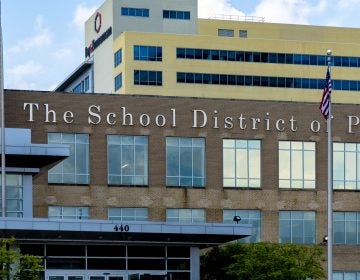
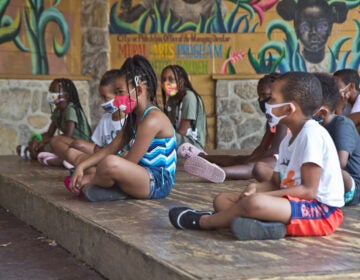
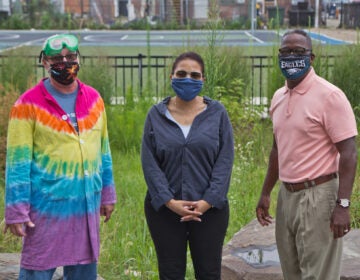
![CoronavirusPandemic_1024x512[1]](https://whyy.org/wp-content/uploads/2020/03/CoronavirusPandemic_1024x5121-300x150.jpg)
